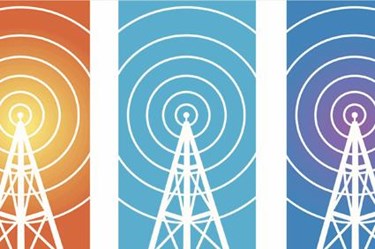The Week In 5G: 3/2/2018 – Carriers One-Up Each Other With 5G Rollout Announcements At MWC; Ask For More Government Support
By Jof Enriquez, Follow me on Twitter @jofenriq

This week's Mobile World Congress (MWC) in Barcelona ratcheted up the 5G hype a few notches with mobile carriers announcing the build-up of 5G in more U.S. cities while calling on government to support their 5G network rollouts.
Sprint said it will have 5G capabilities this year in six U.S. cities: Atlanta, Chicago, Dallas, Houston, Los Angeles and Washington, DC. Hours later at MWC, T-Mobile announced it will deploy mobile 5G to 30 cities this year, including New York and Los Angeles, reported CNET. AT&T last week unveiled plans to operate 5G in Atlanta, Georgia, Dallas, and Waco, Texas. Verizon previously said its first 5G service will start in Sacramento later this year.
Sprint CTO John Saw said that the company can deliver on its promise to launch a nationwide mobile 5G network early next year because it has enough high-frequency 2.5 gigahertz spectrum to cover the U.S. and result in a "more uniform" 5G experience.
T-Mobile CTO Neville Ray, on the other hand, said the carrier will be using the 600 megahertz spectrum, in conjunction with the higher frequency millimeter wave spectrum to power its 5G network.
"AT&T, Verizon, Sprint, and T-Mobile – they're maybe all a little different in what they're doing, maybe the bands that they're doing, what they think the use case might be. And I think that's good for innovation and it's good for competition," 5G Americas president Chris Pearson told ZDNet.
U.S. telco rivals have been trying to outdo each other in hyping 5G, although consumers are not likely to enjoy 5G services the companies promise until next year, when the first 5G devices are expected to be unveiled at MWC 2019.
While phone manufacturers have a whole year to get their 5G devices ready, in the meantime, carriers say they could use some help from the government with their ambitious rollout schedule. This includes freeing up more spectrum and building up infrastructure.
"Two of the key ingredients to 5G success [are] going to be more licensed spectrum into the marketplace, and densification of your networks – and so for that densification to happen, what you need is more streamlined processes," Pearson told ZDNet.
Federal Communications Commissioner Ajit Pai announced at MWC his desire to auction off access to radio airwaves in the 28 gigahertz (GHz) and 24GHz spectrum bands for 5G use, starting in November, according to Fortune. Pai called on Congress to act by May 13 to change a legal requirement hindering the FCC from moving forward.
"Under the right regulatory and policy frameworks, however, regulators and elected officials can help spur next-generation network infrastructure investment, resulting in economic growth, job creation and increased consumer welfare," wrote Steve Pociask, member of FCC's Consumer Advocacy Committee, and president and CEO of the American Consumer Institute (ACI), in a Forbes article.
T-Mobile's Ray also said that more legislation is needed — in particular, directives that allow the installation of small cells, needed to deploy 5G in dense, urban environments, where most of T-Mobile's 5G services will begin rolling out.
"We've seen a lot of good movement this year both on state and federal level to ease cell siting and specifically small cell siting; it's been a big topic of discussion," Ray said.
Small cells, or miniature base stations, are critical for the realization of 5G networks, and could be the "killer app," or more appropriately, the right 5G business model that "will help extract the value hidden in manufacturing settings where the Internet of Things (IoT) promises to allow machines to communicate with each other," according to IEEE Spectrum.
European telcos also made their voices heard at MWC, calling for a more “investment friendly framework” to fund 5G rollouts and level the playing field with Internet giants, reported TechCrunch.
Vodafone CEO Vittorio Colao urged regulators to apply the “same rules for Internet players” and asked that spectrum be made less expensive and licenses extended beyond the proposed 25 years. He also called for more "regulation-free regions" like what the company had in Milan, where 5G experiments can run unfettered from restrictive rules.
